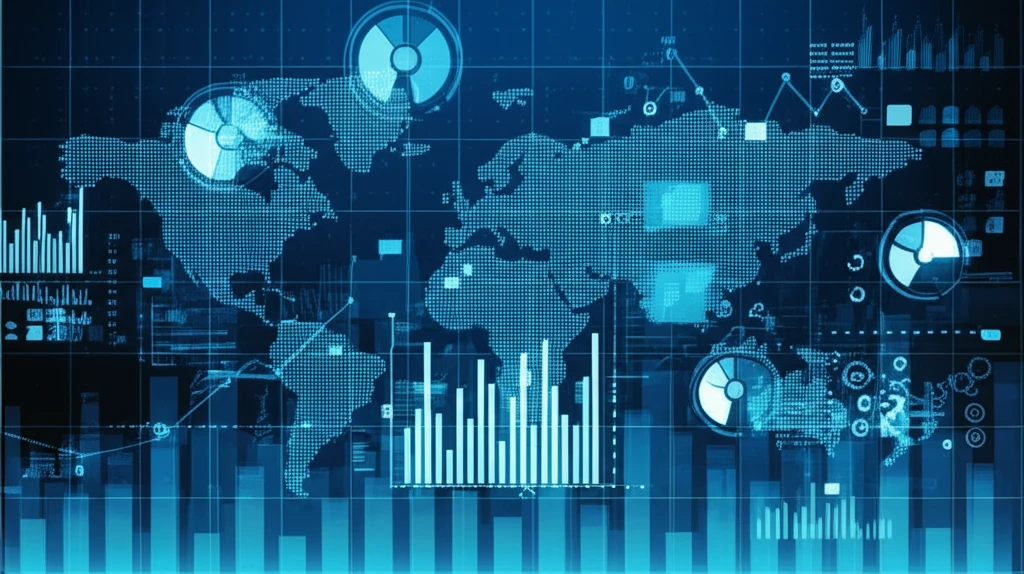
Decoding Big Data: How It's Revolutionizing Economics and What It Means for You
"Unlock the potential of big data in economics: Discover how alternative data sources and advanced analytics are reshaping our understanding of markets, consumer behavior, and economic trends."
The term "big data," initially confined to the realm of information technology, has now permeated nearly every facet of our lives. From governmental decision-making to healthcare, and economics, its influence is undeniable. The surge in internet usage, mobile phone adoption, and the proliferation of social media networks and sensors have created unprecedented quantities of data, profoundly impacting economic research.
This data revolution is transforming how we measure human behavior and economic activities. Traditional economic indicators such as unemployment rates, consumer price indices, and population mobility are now being augmented—and sometimes even supplanted—by insights derived from big data sources. Financial transactions, online behavior, and social media sentiment offer new lenses through which to understand economic phenomena.
In this article, we'll delve into the world of big data in economics. We will explore a taxonomy of big data sources, demonstrating how these sources can be harnessed for empirical analyses and to construct economic indicators more rapidly and cost-effectively. Join us as we unravel the potential of big data to revolutionize our understanding of the economic landscape.
The Rise of Unconventional Data: A New Economic Frontier

Technological advancements have ushered in what many call the 'data revolution.' The internet, social networks, smartphones, wearable devices, and various sensors generate vast quantities of data daily. Online commerce, social interactions, marketing campaigns, traffic monitoring systems, and satellites all contribute data that can describe human and economic behavior.
- Volume: The sheer quantity of data being generated.
- Velocity: The speed at which data is generated and needs to be processed.
- Variety: The different types and formats of data.
- Veracity: The accuracy and reliability of the data.
- Value: The insights and benefits that can be extracted from the data.
Embracing the Data-Driven Future of Economics
We are in the midst of a data revolution, with human activities generating enormous quantities of digital data. These new data sources offer an opportunity to analyze and understand economic and social trends if used properly. From data collection to dissemination, it is essential to address key issues to obtain robust results. Partnerships between data owners and analysts are crucial, and legal and ethical considerations must be addressed to ensure data is used responsibly. By embracing these practices, we can unlock the full potential of big data to drive economic understanding and inform policy decisions.
